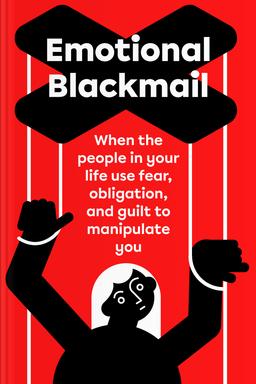You replay that conversation from three years ago. You apologize for things that weren't your fault. You carry the weight of every mistake like a backpack full of stones.
Books about guilt won't erase what happened, but they can help you understand why you're still punishing yourself — and how to stop. Dr. Susan Forward in 'Emotional Blackmail' and Sheryl Sandberg in 'Option B' show that guilt isn't always about what you did wrong. Sometimes it's about what others taught you to feel.
Books about guilt that explain why you can't move on
Books about guilt dig into the psychology behind why certain feelings stick around long after the situation has passed.
Dr. Guy Winch's 'Emotional First Aid' treats guilt like an emotional injury that needs proper care, not just time. He explains that unprocessed guilt becomes toxic when you replay scenarios endlessly without resolution.
'The Now Habit' by Dr. Neil Fiore explores how guilt feeds procrastination — you feel bad about not starting, so you avoid starting, which makes you feel worse. Fiore breaks this cycle by reframing guilt as a signal, not a life sentence.
Carolyn Elliott's 'Existential Kink' takes a wild approach: what if you're unconsciously enjoying your guilt? Elliott argues that we sometimes cling to negative feelings because they serve a hidden purpose — maybe guilt makes you feel morally superior, or it gives you an excuse not to try. This idea sounds strange until you start noticing patterns in your own life.
Dr. Norman Vincent Peale's 'The Power of Positive Thinking' suggests a different angle. He points out that guilt thrives when you focus on past failures instead of current possibilities. Peale's advice isn't about ignoring what you did — it's about choosing where to direct your mental energy.
Books on guilt and shame that help you stop apologizing for existing
Books on guilt and shame reveal how these two emotions work differently. Guilt says, "I did something bad." Shame says, "I am bad."
Dr. Susan Forward's 'Emotional Blackmail' shows how manipulative people exploit this difference, using your guilt to control your behavior.
Sheryl Sandberg's 'Option B' came from personal tragedy — her husband's sudden death. Sandberg wrestled with survivor's guilt and the shame of not "moving on" fast enough. She learned that grief and guilt don't follow timelines, and that self-compassion isn't selfish.
'I Will Teach You to Be Rich' by Ramit Sethi addresses financial guilt, particularly for those raised with scarcity mindsets. Sethi points out that guilt about spending money on yourself often stems from shame about deserving good things. He teaches readers to distinguish between wise financial choices and emotional self-punishment.
Dr. Guy Winch notes in 'Emotional First Aid' that shame isolates us because we believe we're uniquely flawed.
Books on guilt and shame work because they show you're not alone — and that healing doesn't require perfection, just honesty about where you are now.




